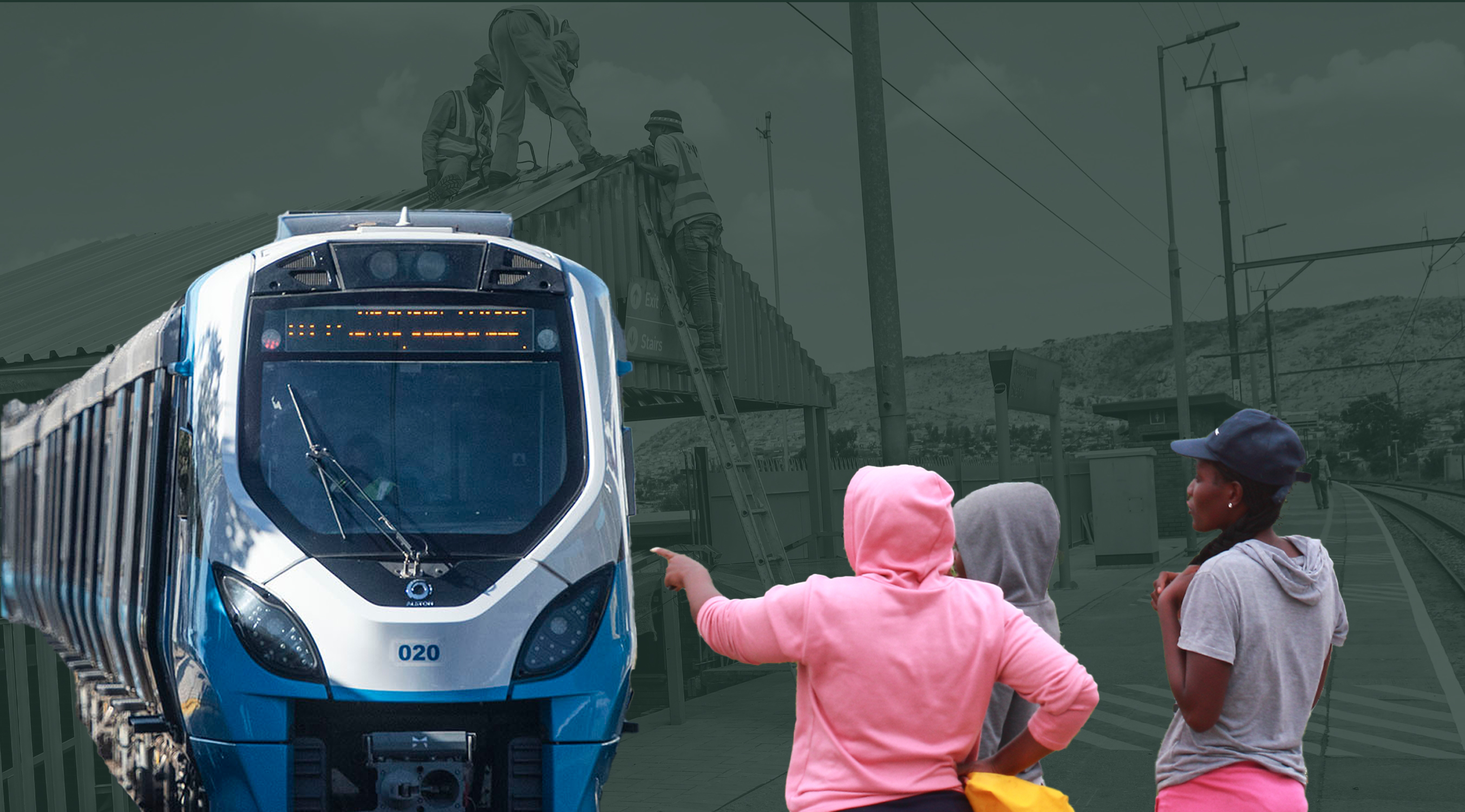I use public transport so seldom that I hardly ever think about it. So car-driven are our middle classes that I can’t imagine life without one. And that means I don’t really think about what could change, how our lives would all change, if certain things happened.
But after hearing all the conversations about our railways, and the big changes the transport minister is trying to introduce, I’ve been struck by a strange thought: Perhaps the single-biggest change the government could make to the lives of millions of people would be to fix commuter rail.
Millions of people living in townships spend more than 50% of their salaries every month just getting to and from work. If that were reduced to, say, 10%, while those trips were made quicker and easier, it would change everything.
People would have a lot more money to start with, money that is currently spent in cash on minibus taxis would enter the formal economy in other ways, and individuals would be able to improve what economists call their “capital allocation”.
There are some places where this already happens.
I know someone who lives in Soweto, works in Auckland Park and needs to get to work early in the morning. He’s lucky enough to be able to walk to his nearest bus rapid transit station, and the first bus is early enough to get him to work on time. In the tradition of early-morning public transport in many places, over time he has come to know most of the people taking the same bus, meaning there is a sense of community around him every morning.
Another person I work with occasionally in an office in the Cape Town City Bowl uses the MyCiti system to get to and from work. When I first saw him leaving one evening, walking down the road, headphones perched on his head, I stopped him and asked where he was going. I’ve become so Joburgified in my sense of danger that I was worried for his mortal soul.
He laughed and pointed out the bus stop he strolls to every night.
When I told colleagues in Joburg about this (and they do the same job for the same company), they couldn’t believe it.
Unfortunately, my own personal experience with public transport nowadays is confined to the Gautrain. It’s hard to use the word “Gautrain” without complaining about what it costs. It’s exorbitant.
But recently, when going from Joburg to Cape Town for a particularly auspicious Gathering, I realised a return trip on the Gautrain from Sandton to OR Tambo would cost roughly the same as a return Uber trip. And both came within about R50 of what it would have cost to park a car at OR Tambo over the two days.
It was during one of those periods when parking a car at a Gautrain station was, really, R1 a day.
Which meant the speed and convenience of the Gautrain won out.
/file/dailymaverick/wp-content/uploads/2025/05/ED_479022-1.jpg)
And look, say what you like about the cost, the thing does work.
It is amazing that with everything we complain about, you can still get to the Sandton Gautrain station an hour before your domestic flight takes off, with a 70% chance of making it (if you literally jump on the train as the doors close, have no luggage and are wearing trainers).
I’m always strangely encouraged to find that many people use it as a commuter line, and often do some work along the way.
I have the slightly forlorn hope that one day I might use it in this way too, to go from where I live to Sandton, or perhaps from one workplace to another (if indeed there are workplaces by then).
/file/dailymaverick/wp-content/uploads/2025/10/6I1A0273.jpg)
I think that, perhaps, one of the problems with public transport is that age-old political problem: when the middle classes don’t use a government service, they don’t put pressure on the government to improve it.
The recovery of the Passenger Rail Agency of South Africa (Prasa) from the dark days when Lucky Montana lied about how tall trains were has been uneven but still impressive. The number of journeys is increasing even though it is still far below the previous peak.
The problem, of course, is that expanding commuter rail services costs money. Heaps of it.
But maybe, considering the difference it would make to the lives of millions for generations to come, it would be a good place to allocate our capital.
Now, commuter rail is obviously the most important part of our passenger rail system. But there are romantic hopes that perhaps long-distance passenger rail transport might, one day, be a thing in South Africa again.
I have found myself, from time to time, when needing a brief 10-minute holiday from whatever is happening around me, searching for a particular series of articles that remind me that we often live our lives too fast. They’re about rail travel, long-distance rail travel in South Africa from a bygone era.
When South Africa was, in fact, another country – 2018 really does feel that long ago.
Perhaps take some time to imbibe them yourself, and dream of what could soon be again. DM




 Illustrative image. Sources: Walker Station in Pretoria, refurbished after years of closure. (Photo: Gallo Images / OJ Koloti) | A Prasa rail train travelling between Dube and Ikhwezi stations in Soweto. (Photo: Gallo Images / Fani Mahuntsi)
Illustrative image. Sources: Walker Station in Pretoria, refurbished after years of closure. (Photo: Gallo Images / OJ Koloti) | A Prasa rail train travelling between Dube and Ikhwezi stations in Soweto. (Photo: Gallo Images / Fani Mahuntsi)